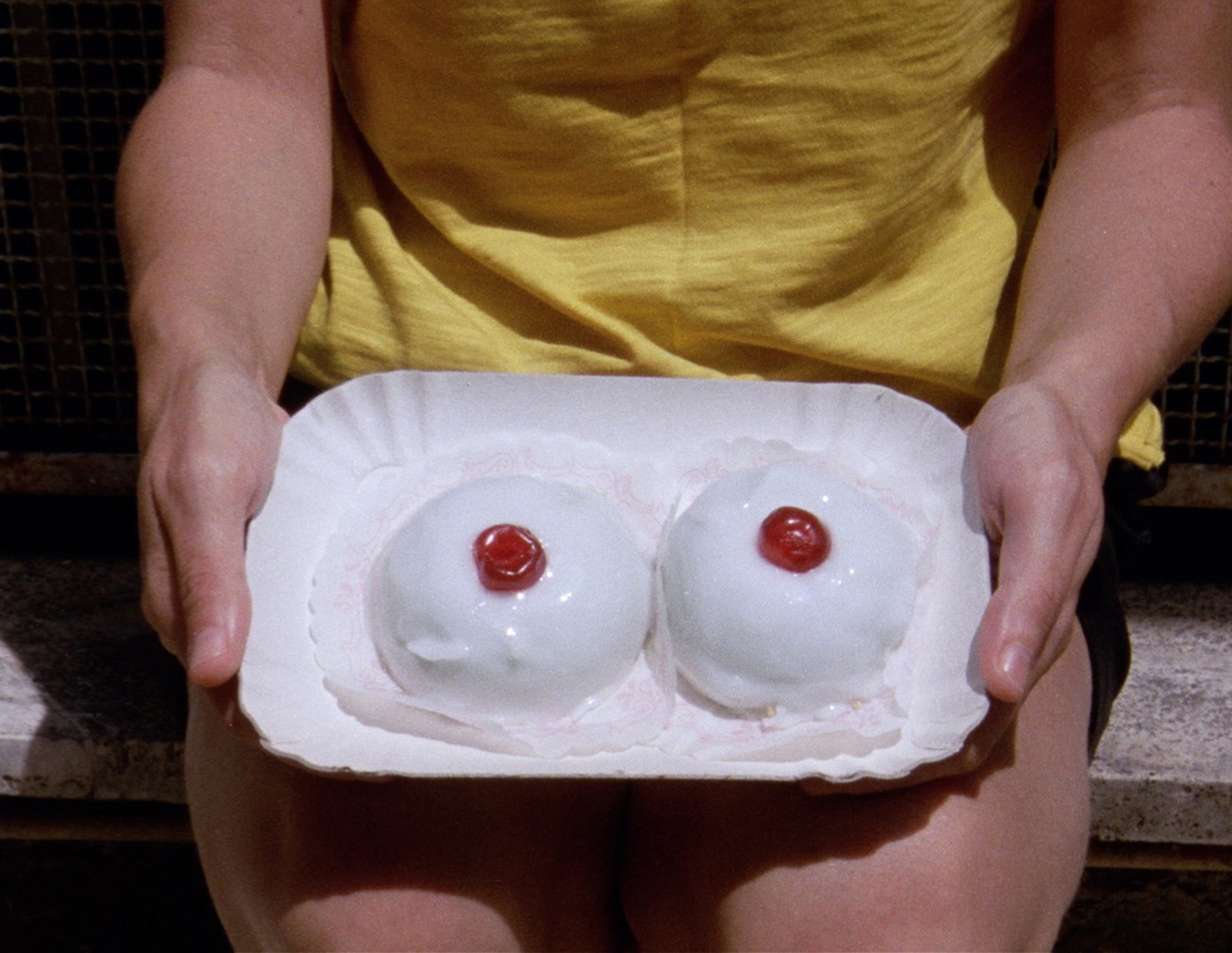Location
Close-Up Film Centre
97 Sclater Street
London E1 6HR

Close-Up Film Centre
97 Sclater Street
London E1 6HR
5 December 2024
8:15 PM – 10:00 PM
Program Notes.
Since its inception in 1978, the Millennium Film Journal has aspired to provide a space for writers and artists to document and discuss the ever-evolving field of artists’ moving image. With its consistent focus on contemporary media, the MFJ is a primary source record of the last 45+ years of the field. Keenly aware of the disconnect between reading about and watching film, the MFJ is always on the lookout for ways to bridge the gap. For several years, they have launched each issue of the magazine at New York City’s Anthology Film Archives with a programme of works addressed in the issue. Specifically for the Close-Up, they have drawn from their last two years of launch screenings to create a survey of recent moving image artworks from around the world.
Curated by senior editor Grahame Weinbren, Jonathan Ellis, and Vincent Warne.
Eva Giolo DEMANDS OF ORDINARY DEVOTION (2022, 12′)
. . . the words “circular,” “close-up,” and “hands” may give a sense of the film’s gambit—these elements are the building blocks of the majority of the film, cyclically cutting between the coin flip, a mother, a carpenter, and a filmmaker, all engaged in their respective processes. The film strings together isolated moments and gestures from each of these milieux with an insistent musical editing style that finds rhythm in repetition and variation, using visual rhymes to draw parallels among different forms of labor and love. Despite the repetition and carefully framed shots, the film is far from clinical. Giolo keeps things playful with clever visual puns and Freudian double entendres, in the images, the sounds, and their juxtaposition. The omnipresence of 16mm film, both in the texture of the images and the diegetic appearance of the Bolex, demonstrate Giolo’s commitment to the particularly tactile process of analog filmmaking. Beautifully filmed, impeccably edited, the work vibrates with the substance of life, labor, joy, and uncertainty. –Vince Warne (MFJ 77 “RIFTS”)
George Kuchar WEATHER DIARY 5 (1986, 34′)
“While the term “diary” imparts a casual tone and strips away the academic pretence that nonfiction often carries, Kuchar’s diaries are no less important anthropological testaments, even if they are grounded in humour, kitsch and perversion. Kuchar’s diaries bring us into his bizarro gaze so that we may meditate on loneliness, desire, disappointment, friendship, and the overall levity and neurosis of the human experience.” – Nevena Džamonja (MFJ 80 “STRATA”)
Bojan Stojčić HOPE HOTEL PHANTOM (2023, 22′)
“Bojan Stojčić’s short film embodies a Kucharian ethos while dealing with an ultimately heavier subject matter. Many people do not know that the birthplace of modern Bosnia and Herzegovina is Dayton, Ohio, where in 1995, negotiations with three warlords were held near the Wright Patterson Air Force Base. Made during a pilgrimage to the Hope Hotel where the negotiating parties were hosted, the film is both an educational rehash of this event and an emotive contemplation on humanitarian and post-conflict policy. The film unfurls slowly across the midwestern suburban sprawl with Stojčić as the hotel’s apparently only, yet invisible, guest.” – Nevena Džamonja (MFJ 80 “STRATA”)
Takeshi Murata & Christopher Rutledge LARRY (2023, 4′)
To the rhythm of blaring electronic beats, the titular CGI canine emerges onto the street, haggard, from a stairwell doused in purple light (long night at the club?), leading a procession of doppelgangers. Larry sheds skins, liquifies like molten volcanic lava, attempts to dribble a basketball as his body collapses, swims, multiplies, is rendered in pixels and paint, frays at the edges, solidifies into plastic, becomes a 3D model, and finally adopts the form of other animals before dissolving into a Lynda Benglis-like pour of digital goo.” – Rachel Valinsky (MFJ 79 “Re:presentation”)
Christoph Janetzko THE MECHANICS (2021, 21′)
“(…) the glory of light dominates over jagged rhythms of montage and the unadulterated beauties of all-over composition. Initially the slow flow of images is punctuated by bright white flashes and the familiar cracking and sizzling of the hand-held welder. In contrast, periods of blackness interrupt the next series of images. Details of the mechanics’ welding activity follows, burning out the digital image with rapid bursts of pure whiteness, which vaguely reminds a viewer of the rhythmic strobes of the Light Show. The images are indeed dancing-resting-dancing. Janetzko makes use of an armory of contemporary techniques, reflecting a deep familiarity with the arcane mysteries of digital video technology, which matches the analogue skills in the mechanics’ oil-stained hands. It is a breathtaking visual statement.” – Ingo Petzke (MFJ 74 “Fact/Artifact)
Julie Perini 1000 WATERS: HOT SPRINGS & 1000 WATERS: RIVER MOSS HERON (2024, 7′)
“Perini’s 1000 Waters series is composed of four separate films that intermingle audio-visual ecocriticism with observational memoir. […] Each begins with the camera centred over a blank canvas. The white noise of water, deprived of its physical bodies and corresponding visuals, aurally defines our entry into each film. Sporadically, human voices are overheard. With a controlled, assertive hand, Perini gradually introduces paint via viscous, dripping acrylic, pendulum swaths of watercolour, or dabber splats, until each canvas becomes wholly drenched, revealing an optical illusion just beneath its surface.” – Elizabeth Lowe (MFJ 80 “STRATA”)
Total running time: ca. 100 min.
The Millennium Film Journal is affiliated with Millennium Film Workshop, Inc.
Email: mfj@millenniumfilmjournal.com
Web: millenniumfilmjournal.com
Copyright © 2024 by Millennium Film Workshop, Inc. ISSN 1064-5586
Distributed internationally by Central Books.
This program is partially funded by NYSCA through the Millennium Film Workshop.
The Millennium Film Workshop gratefully acknowledges support for the Millennium Film Journal by the following individuals and organizations:
• Deborah and Dan Duane
• Walter and Karla Goldschmidt Foundation
• C. Noll Brinckmann
• New York State Council on the Arts
• Anonymous Donors
• Our Advertisers
If you’d like to support the publication of the Millennium Film Journal with a tax deductible gift, please access https://millenniumfilmjournal.com/donations/donation-form/
